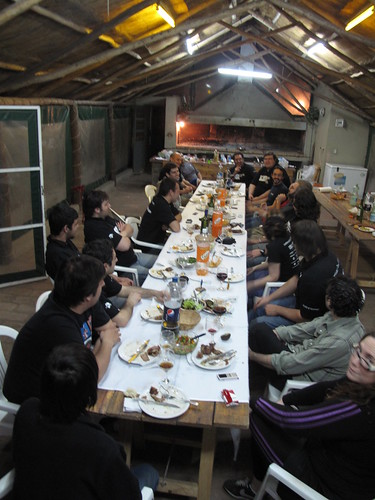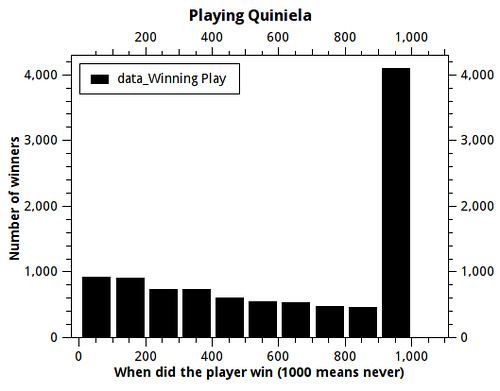Yes, I know I'm wrong, but listen to me...
I have a strong tendency to be argumentative. That's because I really enjoy a good argument, if you'll pardon the obviousness.
The best thing about a good argument is that you get the most amazing insights from the wrong side of it. For example, Lamarckian vs. Darwinian evolution: Lamarck was wrong. But Lamarckism is a heck of an idea, and once you get lamarckism, you can pass it on! (ha!).
Or, the chicken and the egg? I actually got into an argument (and I did not start it myself) about this a couple of weeks ago.
If you start with something that's wrong, you can backtrack and see why it's wrong. What was the implicit mistaken assumption, the incoming garbage that created the outgoing crap. And then you can tweak it. And see what new garbage comes out. Wrong stuff, but new stuff.
And that's one of the great things about being a nerd: nerds are the awesome at this. Oh, you may think people in politics would be better? Nah, they never change their minds. Lawyers? Well, they argue for money!
But nerds? We do it for fun. And most of us don't give a damn about looking weird to others because we already know we look weird to others.
Spending 4 hours locked in a car with average humans is mostly a chore. Someone will play music, maybe people will talk intermittently about stuff that happened in the last few days, whatever.
But lock 4 nerds in a car for 4 hours and you're going to listen to stuff. This happened to me twice in the last few weeks. And in between, we had a dinner with a very high nerd factor (with alcohol assist)... great fun.
 Warning, nerds and alcohol mix a bit too well.
Warning, nerds and alcohol mix a bit too well.Now, I know many experience this when they are with people that have a certain thing in common. I've seen something similar happen betwen, for example, communists and former communists. They would talk for hours, and it was lots of fun (even for me ;-) but what they talked about was their common thing: communism.
 Yes, the tiramisu has penguins in it.
Yes, the tiramisu has penguins in it.Nerds apparently don't have such inclination. Nerds will argue about anything. Nerds will argue about everything. And that makes me think... why are nerds seen as shy and introverted? Hell, why are nerds shy and introverted? How can I reconcile what I see when I'm among fellow nerds and how others see us?
 Yes, penguin cookies
Yes, penguin cookiesAnd it's not easy. I am by all standard measures painfully shy. I had great difficulty making friends when I was a kid. I didn't like the things other kids liked. I didn't know many things they knew all along. I continuously was the butt of jokes for being naïve on things I had never heard about. I was always afraid to speak when I was in a group because I thought I would make a fool of myself.
Shy doesn't mean boring. Shy doesn't mean someone who doesn't have anything interesting to say. Shy means someone that has problems starting.
On the other hand, I have spoken in front of hundreds and I've been told I look relaxed (I am not, I am faking, guys). I write under my real name and I never felt something was "too weird" so I shouldn't write it (coming soon: an economic explanation of why men like to see women kissing), so I am not really afraid of people thinking I'm weird. What the hell, I know I'm weird. Ask me if you see me: Am I weird? Yes!
But I still have trouble when I am in a party with people I don't know (I am lucky my wife is like social WD-40). I still have trouble making small talk. I don't know what happened in the TV show everyone watches. I appear shy and introverted. Until you know me.
